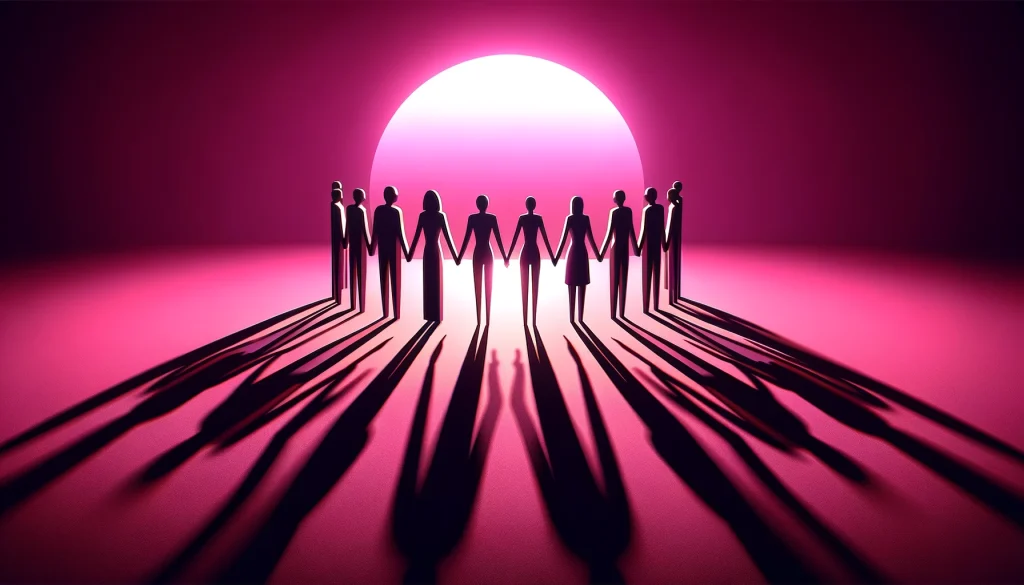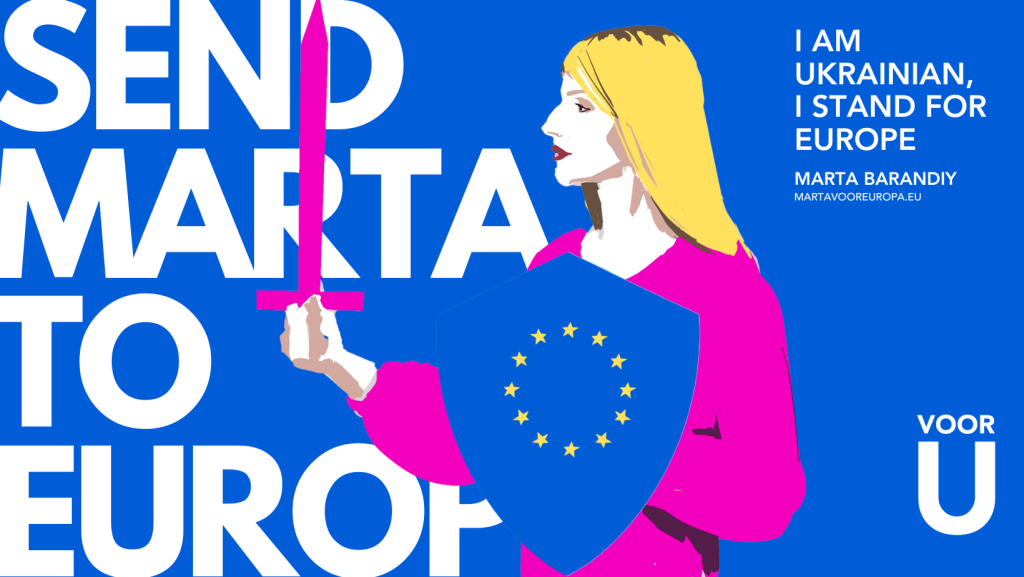This opinion is written as an answer to the opinion “Organise an election debate around Ukraine.”

Since November 2023, more than 20 activists of my organization, “Promote Ukraine,” have been working hard to put Ukraine on the agenda of the Belgian national and European elections. We noticed that two years after the full-scale invasion, those politicians who called this war their own and used every opportunity to mention Ukraine in speeches, went on TV debates, and featured Ukrainians in their events have now been ignoring the topic of Ukraine almost entirely.
All the political parties of Belgium during New Year receptions presented their vision and candidates for future elections on the national level. Most of them barely mentioned Ukraine. The only party that explicitly said that we must maintain solidarity with Ukraine was CDenV. In the campaign speech by MR in January in Brussels, the only mention of Ukraine was put in wording that “next to many geopolitical challenges, there is a war on the doorstep of Europe.” Not even the word “Ukraine” was pronounced. Moreover, in the past two years, it has been reaffirmed by the abovementioned politicians that Ukraine is Europe and not just its doorstep. On the other hand, the NVA mentioned Russia in the context of energy security, and OpenVLD spoke of Putin in the context of extremism. The Greens or the Left have not mentioned Ukraine at all.
When asking leaders why they did not speak of Ukraine, I was told that it was not a popular topic among the electorate that came to listen to the speeches. In fact, existing political parties often change narratives according to the expectations of the electorate, following them instead of leading them.
At the same time, the percentage of those supporting Ukraine is still extremely high: 58% of Belgians are in favor of military help and European integration of Ukraine.
The Russian invasion of Ukraine has influenced European views on democracy, governance, and international relations. The invasion has led to increased trust in politicians and political parties, heightened satisfaction with democracy, and reinforced the importance of freedom and solidarity across Europe. Why would politicians who are in power to navigate this sentiment for the benefit of the people who trust them downplay it? It is a betrayal.
Understandably, the Ukrainian issue is closely related to defense matters. Since Belgian defense in the political spectrum of budget lines and public attitude belongs to the “laugh-at-category,” politicians who want to be elected again, do not want to associate themselves with comedy.
At the same time, they are associated with a show. Instead of leading the way, we see the Instagram of Belgian political leaders performing a show for the sake of being liked by the public.
Ukraine has a showman who turned into a serious politician, and Belgium has politicians who turn into showmen.
So, what is the worry about the defense? Let’s turn it into serious politics!
In Ukraine, the army was something to laugh at until 2014, but since 2022 it has been the only institute that deserves the trust of 96% of the people of Ukraine, which has grown enormously from 56% in 2016.
Belgium is not taking seriously the warning of its own Army Generals that Europe needs to prepare urgently for potential Russian aggression. Yet, rephrasing Sun Tzu, if you don’t respect your army, you will have to respect the army of an enemy.
I admit, in a situation of peace and election campaign, it is hard to publicly answer a question without losing the electorate: “Is it better to negotiate with Putin or prepare for self-defense?”
It should be noted that “warmongering” is the keyword of those willing to neutralize the argument that defense needs to be strengthened and Ukraine needs to be helped. At the same time, if “negotiations” or “appeasement” were a solution, the war that the Kremlin started in 2014 would not escalate in 2022. All those eight years, appeasement was a general policy of all European states towards Russia. Did it help?
While assuming that the negotiations could be a solution, we should be honest with ourselves on how reliable the promise of Putin would be. He kills his opposition; he tells Russian people that they fight “the collective West.” This has been the case since the year 2000, long before the war on Ukraine or any rhetoric on the integration of Ukraine into NATO or the EU happened.
Besides, how would you negotiate with someone constantly using imperialistic and genocidal rhetoric, using narratives of the “Russian world” and “saving compatriots”? And finally, how would you negotiate with someone having an arrest warrant for kidnapping thousands of children and removing their identity? Putin takes as a personal humiliation by a collective West a resistance to imperialistic growth: will he forgive, or shall we prepare?
References:
- The Brussels Time. Two years into the war, Belgian support for Ukrainian aid wavers
- The London School of Economic and Political Science. How Russia’s invasion of Ukraine has changed public opinion in Europe
- «Слово і Діло». Як змінювався рівень довіри українців до силових та правоохоронних органів




